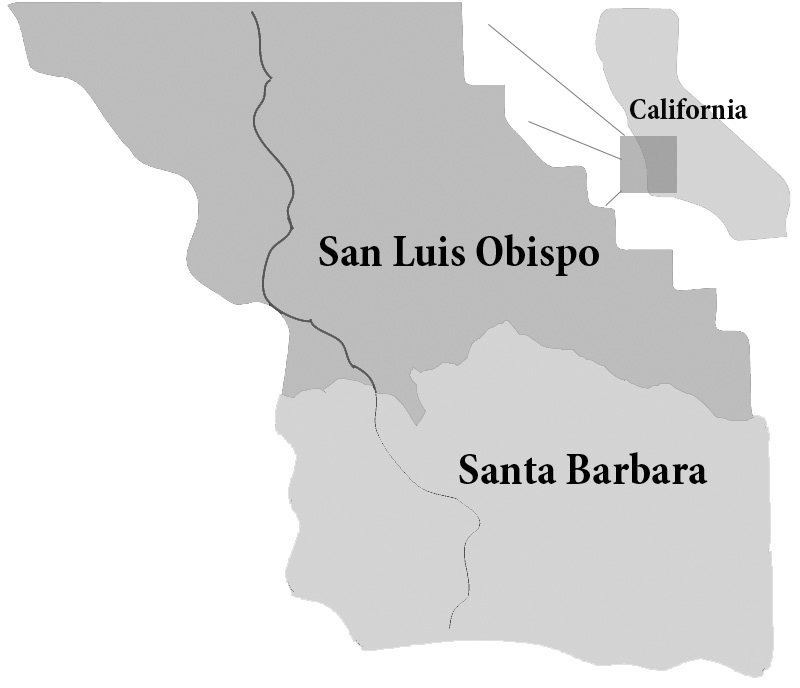
News
Harvard Grad Union Agrees To Bargain Without Ground Rules

News
Harvard Chabad Petitions to Change City Zoning Laws

News
Kestenbaum Files Opposition to Harvard’s Request for Documents

News
Harvard Agrees to a 1-Year $6 Million PILOT Agreement With the City of Cambridge

News
HUA Election Will Feature No Referenda or Survey Questions
Harvard Management Company Invests in California Vineyards

Harvard Management Company, the in-house management firm that oversees the University’s $32.7 billion endowment, has continued its strategy of investing in natural resources by purchasing millions of dollars' worth of vineyard land in central California, according to University tax filings and recent reports of purchases in the region.
Brodiaea, a Delaware-based corporation that is entirely owned by the University, paid $10.1 million in February for more than 7,500 acres in Santa Barbara County, according to a report last month by the Farmland Investor Center, a market research firm. David Hamel, an appraiser quoted in the report, estimated that the University, through Brodiaea, has so far paid $61 million for more than 10,000 acres in the Santa Barbara and San Luis Obispo Counties.
Kevin Galvin, a spokesperson for the University, confirmed that HMC owns the land described in the reports. Galvin declined to comment on how much was paid for the acres.
HMC’s new holdings come in a region where the quality of land and grapes is rising, according to Michael Fritz, the author of the story which first reported the purchases.
“If you can get in in the early days before the land prices skyrocket, you’re better able to harvest returns as time passes,” Fritz said in an interview with The Crimson.
The purchases reflect the continuation of HMC’s long-established strategy of investing in natural resources. Jane L. Mendillo, president and CEO of HMC, wrote in the organization’s 2013 annual report that impressive historical performance of natural resource holdings “demonstrat[es] the continued potential of this investment area.”
HMC’s natural resource holdings have generally performed well in the last ten years, generating an average return of 12.2 percent annually, though last year the holdings returned just 5.1 percent.
But HMC has faced criticism, especially recently, over the way it manages some of these holdings.
In February, HMC put most of its holdings of Romanian timberland up for sale after a former University contractor in the region was arrested on charges of bribery and money laundering.
The University has also faced allegations of mismanagement of its two timber plantations in Argentina. The Responsible Investment at Harvard Coalition, a group of students, professors, and other community members, has claimed that under HMC’s watch, the University-owned plantations in Corrientes, Argentina have led to a degradation of local wetlands and a general decline in quality of life for surrounding inhabitants.
Andrew G. Wiltshire, who manages alternative assets for HMC, vehemently denied the central charges of the coalition in an op-ed published in The Crimson last Wednesday.
—Staff writer Christine Y. Cahill can be reached at christine.cahill@thecrimson.com. Follow her on Twitter @cycahill16.
—Staff writer Matthew Q. Clarida can be reached at matthew.clarida@thecrimson.com. Follow him on Twitter @mattclarida.
Want to keep up with breaking news? Subscribe to our email newsletter.
From Our Advertisers

Over 300+ courses at prestigious colleges and universities in the US and UK are at your disposal.

With innovative financial tools combined with financial education, Collegiate empowers students to take control of their finances and build confidence in their money management skills.

Serve as a proctor for Harvard Summer School (HSS) students, either in the Secondary School Program (SSP), General Program (GP), or Pre-College Program.

With an increasingly competitive Law School admissions process, it's important to understand what makes an applicant stand out.

Welcome to your one-stop gifting destination for men and women—it's like your neighborhood holiday shop, but way cooler.

Admit Expert is a premium MBA admissions consulting company, helping candidates secure admission to top B-schools across the globe with significant scholarships.
